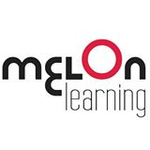Description

Examination Online

Melon LMS
Comprehensive Overview: Examination Online vs Melon LMS
To provide an overview of Examination Online, Melon LMS, and SCL, we will examine each in terms of their primary functions, target markets, market share, user base, and key differentiating factors.
Examination Online
a) Primary Functions and Target Markets
- Primary Functions: Examination Online is a versatile platform designed to streamline the creation, administration, and analysis of online examinations and assessments. It supports a range of question types, automated grading, and detailed analytics to track student performance.
- Target Markets: This tool primarily targets educational institutions, corporate training departments, and certification organizations that require a robust system for managing online exams and assessments.
b) Market Share and User Base
- Market Share: Examination Online is a niche product with a focused user base, mostly popular within educational and certification sectors. It doesn't have a large market share compared to mainstream LMS platforms.
- User Base: The user base is specific to organizations that need comprehensive testing functionalities, including schools, universities, and professional certification bodies.
c) Key Differentiating Factors
- Specialized in Assessments: Examination Online differentiates itself by offering a specialized platform for exam management with advanced features for customization and analysis.
- Integration Capabilities: It often offers seamless integrations with existing LMS platforms, enhancing their assessment functionalities without requiring a complete overhaul.
Melon LMS
a) Primary Functions and Target Markets
- Primary Functions: Melon Learning Management System (LMS) provides a platform for creating, managing, and delivering e-learning content. Key features include course management, reporting, user engagement tools, and compliance tracking.
- Target Markets: Melon LMS targets corporate sectors, particularly for employee training, onboarding, and compliance purposes. It is also used by educational institutions but is more prevalent in the business environment.
b) Market Share and User Base
- Market Share: Melon LMS is widely recognized in the corporate training sector and has a competitive market share in this domain. It may not be as dominant as top-tier solutions like Moodle or Blackboard in education.
- User Base: Its user base is predominantly corporate, ranging from small to medium enterprises to larger organizations seeking efficient training solutions.
c) Key Differentiating Factors
- Focus on Corporate Training: Melon LMS excels in addressing corporate training needs, offering tools for compliance, progress tracking, and user-specific learning paths.
- Robust Reporting: It offers comprehensive analytics and reporting tools to measure training effectiveness, a crucial feature for businesses.
SCL (School, College, and Learning Management System)
a) Primary Functions and Target Markets
- Primary Functions: SCL is an integrated school, college, and learning management system designed to manage administrative tasks, learning processes, and communication within educational institutions.
- Target Markets: The primary market includes K-12 schools, colleges, and universities looking for a comprehensive system for managing both administrative and learning functions.
b) Market Share and User Base
- Market Share: SCL's market presence is significant in the educational sector, especially in regions where integrated school management systems are in demand for streamlining operations.
- User Base: The user base primarily consists of educational institutions seeking an all-in-one solution for administration and e-learning.
c) Key Differentiating Factors
- Comprehensive Management: SCL stands out for its ability to integrate administrative functions like admissions, fee management, and scheduling with learning management, making it a holistic solution for educational institutions.
- User-Friendly Interface: The focus on ease of use and accessibility is a key strength, making it easier for educational institutions to adopt without extensive training.
Comparative Summary
In summary, Examination Online, Melon LMS, and SCL serve different but occasionally overlapping markets, each with its unique strengths. Examination Online is distinct in its focus on assessments, Melon LMS on corporate training, and SCL on comprehensive educational management. When choosing between them, organizations should consider their specific requirements, such as the need for assessment tools, corporate training features, or comprehensive school management capabilities.
Contact Info

Year founded :
Not Available
Not Available
Not Available
Not Available
Not Available

Year founded :
Not Available
Not Available
Not Available
Not Available
Not Available
Feature Similarity Breakdown: Examination Online, Melon LMS
When comparing e-learning platforms like Examination Online, Melon LMS, and SCL, it's important to assess their core features, user interface design, and any unique functionalities they may offer. Here's a breakdown:
a) Core Features in Common
-
Course Management:
- All three platforms support course creation, management, and organization. Instructors can design content, set schedules, and manage course materials.
-
User Management:
- They offer features to manage users including instructors, learners, and administrators, with tools to enroll, track, and manage roles and permissions.
-
Assessment and Testing:
- Each platform includes functionalities for creating quizzes and exams, automated grading, and reporting tools to evaluate student performance.
-
Analytics and Reporting:
- Comprehensive analytics tools are common among them, allowing instructors to track progress and engagement, and identify areas where learners may need assistance.
-
Communication Tools:
- Features like discussion forums, announcements, and messaging systems to facilitate interaction and communication between users are available.
-
Content Delivery:
- Support for a wide range of content types (videos, PDFs, presentations) and interactive elements to engage students.
-
Integration Capabilities:
- All platforms generally support integration with third-party tools and systems such as payment gateways, CRM, and other educational tools.
b) User Interface Comparison
-
Examination Online:
- Examination Online typically has a user-friendly interface with a focus on examination and assessment features. It is structured to facilitate test delivery, allowing users to intuitively navigate through assessment creation and management panels.
-
Melon LMS:
- Known for its clean, modern design, Melon LMS emphasizes simplicity and ease of use. The dashboard is customizable, providing visual data on learner progress and engagement.
-
SCL (Smart Corporate Learning):
- SCL’s interface is also user-friendly but with a corporate twist, emphasizing aspects such as skill tracking and competency management, which is visually integrated into their dashboard. It may feature a more business-like aesthetic conducive to corporate learning environments.
c) Unique Features
-
Examination Online:
- Unique in its depth of examination features, including support for complex question types and secure testing environments. It might also offer unique customization options tailored for exam-centric institutions.
-
Melon LMS:
- It often leverages gamification elements better than its counterparts, including badges and leaderboards to boost learner motivation. The system's flexibility in compliance training and certifications is another distinguishing factor.
-
SCL (Smart Corporate Learning):
- SCL may stand out with its strong focus on corporate applications, including features like competency mapping, performance reviews integration, and personalized learning paths. These tools align with corporate training requirements more than standard educational needs.
In summary, while Examination Online, Melon LMS, and SCL share many core e-learning features, they each have unique strengths tailored to specific audience needs—be it educational institutions, general e-learning, or corporate environments. The interface design varies slightly to match these focuses, with each offering distinctive features that may appeal differently depending on the user's specific requirements.
Features

Not Available

Not Available
Best Fit Use Cases: Examination Online, Melon LMS
When evaluating Examination Online, Melon LMS, and SCL, it's important to understand how each platform can meet the specific needs of different businesses or projects. Below are the best fit use cases for each, considering industry verticals, company sizes, and specific scenarios:
Examination Online
a) Best Fit Use Cases:
- Businesses with a Focus on Testing and Certification: Examination Online is ideal for companies that need to conduct comprehensive assessments, exams, and certification processes. This includes educational institutions, certification bodies, and professional training organizations.
- Online Course Providers: E-learning platforms that offer courses with graded evaluations and certifications can benefit significantly from Examination Online.
- Large Corporates with Compliance Needs: Enterprises requiring internal assessments for compliance, onboarding, or employee skills evaluation can leverage this platform.
Industry Vertical & Company Size:
- Industry Vertical: Education, Corporate Training, Certification authorities.
- Company Size: Suitable for medium to large enterprises due to its scalable assessment capabilities.
Melon LMS
b) Preferred Scenarios:
- Corporate Training and Development Programs: Melon LMS is designed to support comprehensive corporate training programs, onboarding processes, and employee skill development.
- Blended Learning Environments: It's an excellent choice for businesses that require a hybrid model of virtual and in-person training.
- Organizations Looking for Customizable Solutions: Companies needing a highly customizable LMS to fit specific branding and organizational needs can benefit from Melon LMS.
Industry Vertical & Company Size:
- Industry Vertical: Corporate, Healthcare, Government, and Non-profit Organizations.
- Company Size: Small to medium businesses that require flexible training solutions but also scalable to larger enterprises.
SCL
c) Consideration Over Other Options:
- Academic Institutions: SCL, possibly short for School, College, or Learning management systems, is tailored more towards the academic sector. It is best suited for managing educational processes, student information systems, and enhancing the learning experience in schools and universities.
- Institutions Focusing on Student Lifecycle Management: It helps manage the entire lifecycle of students from admissions to graduation.
- Integration with Educational Standards: Institutions needing to integrate curricula with various educational standards or importing/exporting academic data might find SCL beneficial.
Industry Vertical & Company Size:
- Industry Vertical: K-12 Schools, Higher Education Institutions, and Vocational Training Centers.
- Company Size: Primarily educational institutions of small to large sizes, looking to manage extensive academic and administrative tasks.
General Industry and Company Size Alignment
- Examination Online caters largely to companies where assessments are central to their operations, and they typically require advanced testing features and analysis.
- Melon LMS is versatile for business training environments, offering a balance of e-learning management with customization options suitable for a wide range of sectors.
- SCL is more niche to the educational sector, addressing institutions that need a robust student lifecycle management tool and comprehensive educational frameworks.
Overall, the choice among these platforms depends on the specific needs of the organization, the industry requirements, and the scale of the training or educational programs being managed.
Pricing

Pricing Not Available

Pricing Not Available
Metrics History
Metrics History
Comparing undefined across companies
Conclusion & Final Verdict: Examination Online vs Melon LMS
Conclusion and Final Verdict on Examination Online, Melon LMS, and SCL
When choosing between Examination Online, Melon LMS, and SCL, it is important to evaluate each platform in terms of functionality, ease of use, scalability, customer support, and pricing. Each platform offers unique strengths and may serve different types of users best, depending on their specific needs and contexts.
a) Best Overall Value: Considering all factors, Melon LMS offers the best overall value for most users. It combines a user-friendly interface with robust features and flexible pricing, making it suitable for a wide range of organizations, from educational institutions to corporate training environments.
b) Pros and Cons:
-
Examination Online
- Pros:
- Strong focus on assessment and exam creation tools.
- Customizable test settings for various examination formats.
- Good analytics and reporting features.
- Cons:
- Limited LMS functionalities beyond examination tools.
- May require additional integrations for a full learning experience.
- Could be more expensive if used only for examination purposes.
- Pros:
-
Melon LMS
- Pros:
- Comprehensive LMS with a broad range of features including course management, gamification, and social learning.
- Intuitive user interface.
- Strong support and regular updates/improvements.
- Cons:
- May have a steeper learning curve for administrators unfamiliar with LMS platforms.
- Pricing can be complex based on feature set and number of users.
- Pros:
-
SCL (Student-Centric Learning)
- Pros:
- Emphasizes personalized learning paths and adaptive learning technologies.
- Focus on student engagement and interactive learning.
- Good integration capabilities with other educational technologies.
- Cons:
- May lack some traditional LMS features or require custom solutions.
- Potentially higher costs due to advanced and personalized learning tools.
- Some users may find it too focused on education, limiting corporate use.
- Pros:
c) Recommendations:
-
For Educational Institutions looking for advanced examination tools, Examination Online can be a strong contender if exams and assessments are a central part of your organizational needs. However, it might need supplementation with additional LMS features.
-
For Organizations Seeking a Robust and Comprehensive LMS, Melon LMS would be the most balanced choice, providing extensive features suitable for both educational settings and corporate training environments. Its blend of user-friendly design and powerful capabilities offers versatility.
-
For Individualized or Adaptive Learning Environments, especially those emphasizing student agency and engagement, SCL is arguably the best choice. However, institutions must be ready to invest in its advanced features, and consider future scalability.
Ultimately, the choice should be aligned with your organization's specific needs, goals, and budget constraints. It's advisable to utilize free trials or demos offered by these platforms to get hands-on experience and ensure the chosen system meets your requirements effectively.
Add to compare
Add similar companies



